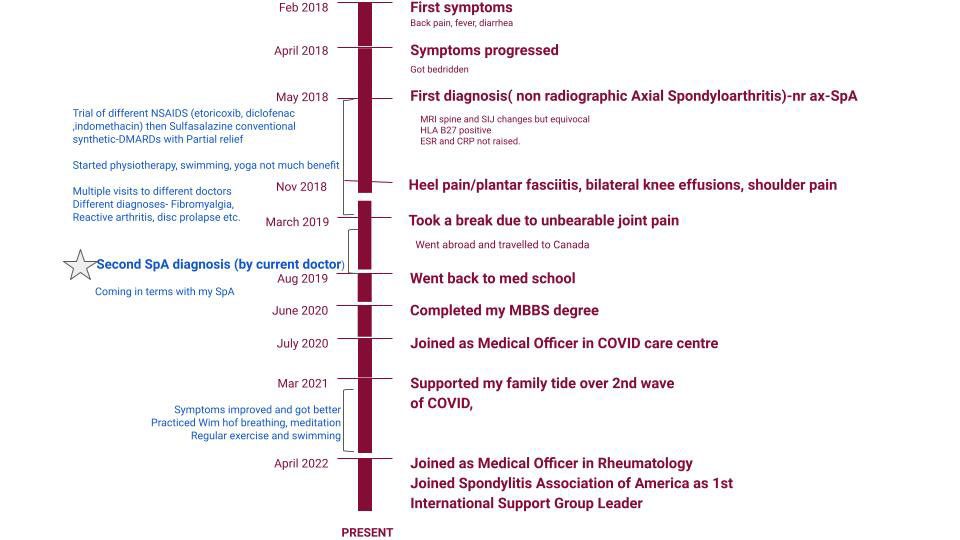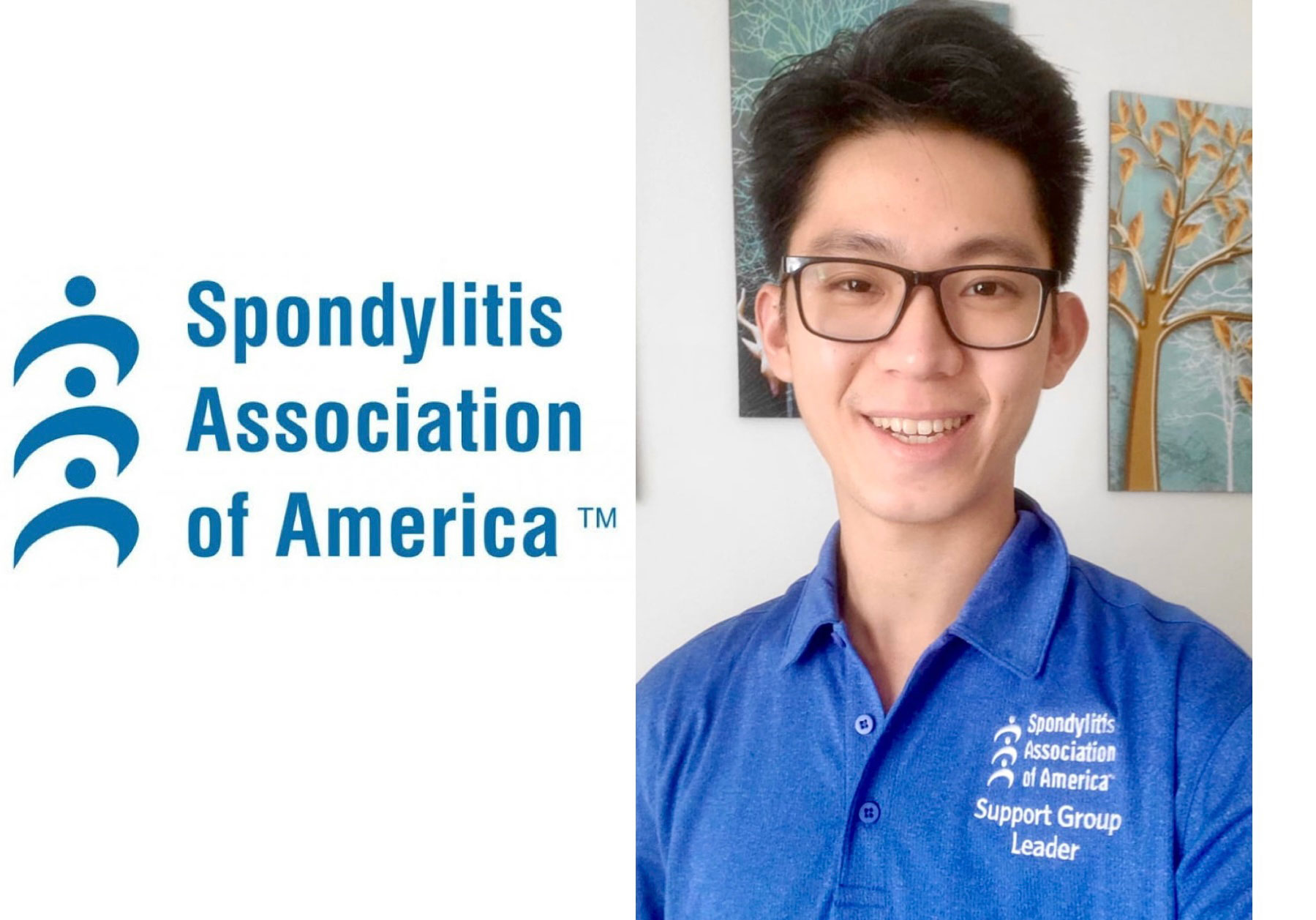Session Information
Date: Saturday, November 12, 2022
Title: Patient Perspectives
Session Type: Patient Perspectives
Session Time: 5:00PM-6:00PM
Background/Purpose: From being a table tennis champion to getting into medical school, I thought my life was smooth sailing. But little did I know it was all going to change.
In February of 2018, the day before I turned 22, I started experiencing back pain, fever, and diarrhea. The fever and diarrhea resolved in 3 days but the pain remained and progressed over the next 2 months leaving me bedridden. My doctor suspected it to be Spondyloarthritis (SpA) after the HLA-B27 blood test came back positive and the MRI of my spine showed changes. I was prescribed Etoricoxib, a non-steroidal anti-inflammatory drugs (NSAIDs) followed by Sulfasalazine, a disease-modifying anti-rheumatic drug (DMARD) for treatment, however they only provided partial relief. Unconvinced and in search of an alternate diagnosis, I underwent a series of inconclusive medical visits with different doctors and investigations, only to arrive at a dead end. Several diagnoses and medications left me more confused and distraught. All this happened during the last year of medical school when my colleagues were preparing to embark upon their careers while I was in fear of my future uncertainties, questioning whether I will ever get better.
Intervention: Desperate for a cure, I tried everything:- Alternative medicine, physiotherapy, and low impact exercises such as swimming, cycling and the use of orthotics but nothing worked. Losing all hope I had spiralled to my lowest point.
I decided to take a break from my studies and, with the help of my family, I went to stay with my relatives abroad.The trip made me realize that the world had so much to offer, and I shouldn’t waste it self-pitying.
With a new perspective, I was determined to get better. Luckily, I eventually found a doctor who understood my predicament and helped me accept my diagnosis of SpA. From that day onwards, I never looked back. I understood my limitations and set my expectations accordingly. With the same medications and exercise routine, I showed more improvement. Slowly and steadily, I got back into my medical training and became a doctor.
In retrospect I now realise that accpeting my diagnosis was the hard part.
Maintenance: I live by the mantra, “Not to over-exert the body on your good days and always strive to be active on your bad days”. Movement, be it playing sports, cooking food, travelling, or anything that inspires you to move is the key to recovery in SpA.
I currently swim on regular basis and have started playing table tennis again.With each passing day, I am getting better while learning to incorporate new treatments to my routine like yoga, wim-hof breathing, meditation, and tai-chi. There has been a significant improvement in my strength, pain threshold, flexibility and overall fitness.
Quality of Life: Now motivated by my condition every day, I am a member of the Spondylitis Association of America and their 1st International Support Group Leader, hoping to inspire people like me to live their best life. I am also working as a medical officer in rheumatology under the leadership of same doctor who guided me through my SpA journey.
My message for readers is a line taken from my favourite movie, Kung Fu Panda:
“Your story may not have such a happy beginning but that doesn’t make you who you are,
It is the rest of your story about who you choose to be”.
My Profession, My Routine ,My Mentor and My Rheumatology Dream Team
#StandingTallwithAS
To cite this abstract in AMA style:
Chiu S, Chiu M. From Denial of Spondyloarthritis to Becoming a Support Group Leader and Medical Doctor of Rheumatology: A Patient’s Perspective [abstract]. Arthritis Rheumatol. 2022; 74 (suppl 9). https://acrabstracts.org/abstract/from-denial-of-spondyloarthritis-to-becoming-a-support-group-leader-and-medical-doctor-of-rheumatology-a-patients-perspective/. Accessed .« Back to ACR Convergence 2022
ACR Meeting Abstracts - https://acrabstracts.org/abstract/from-denial-of-spondyloarthritis-to-becoming-a-support-group-leader-and-medical-doctor-of-rheumatology-a-patients-perspective/



